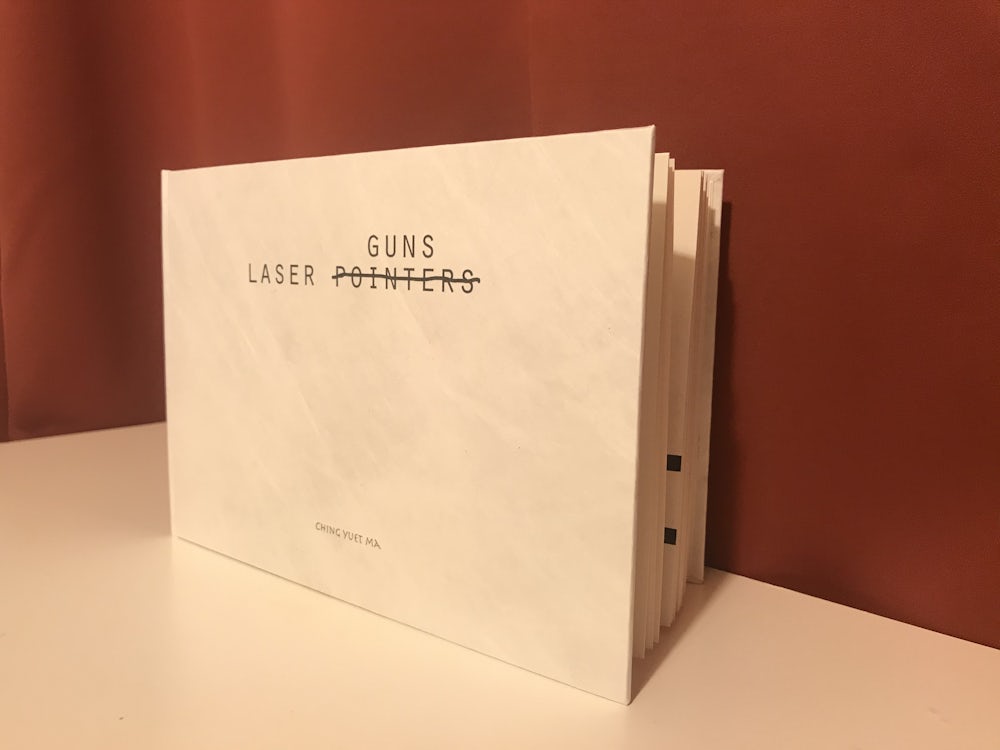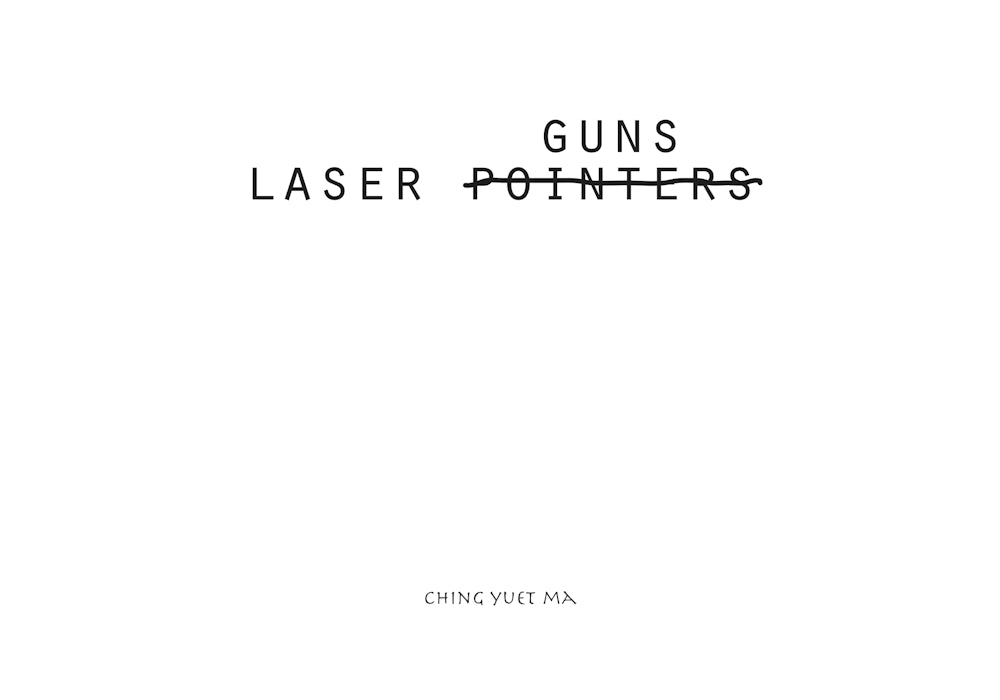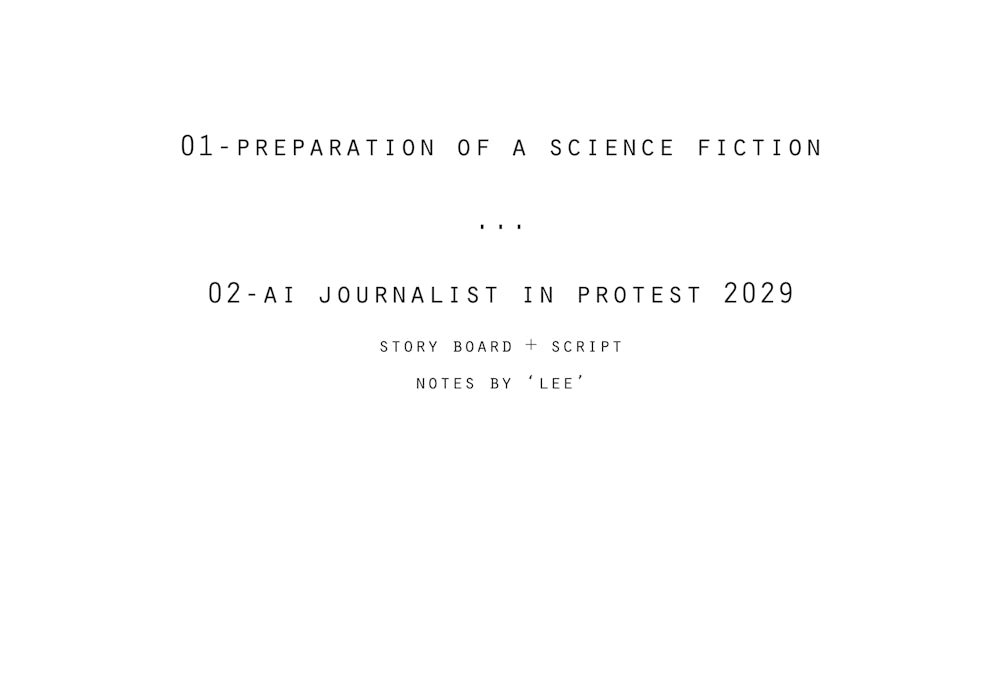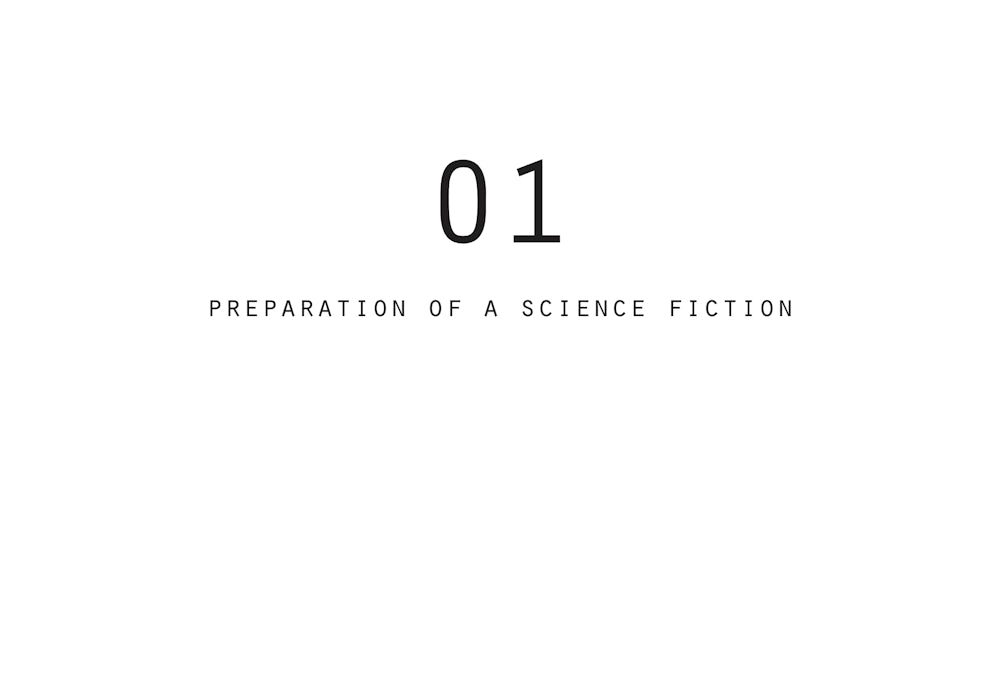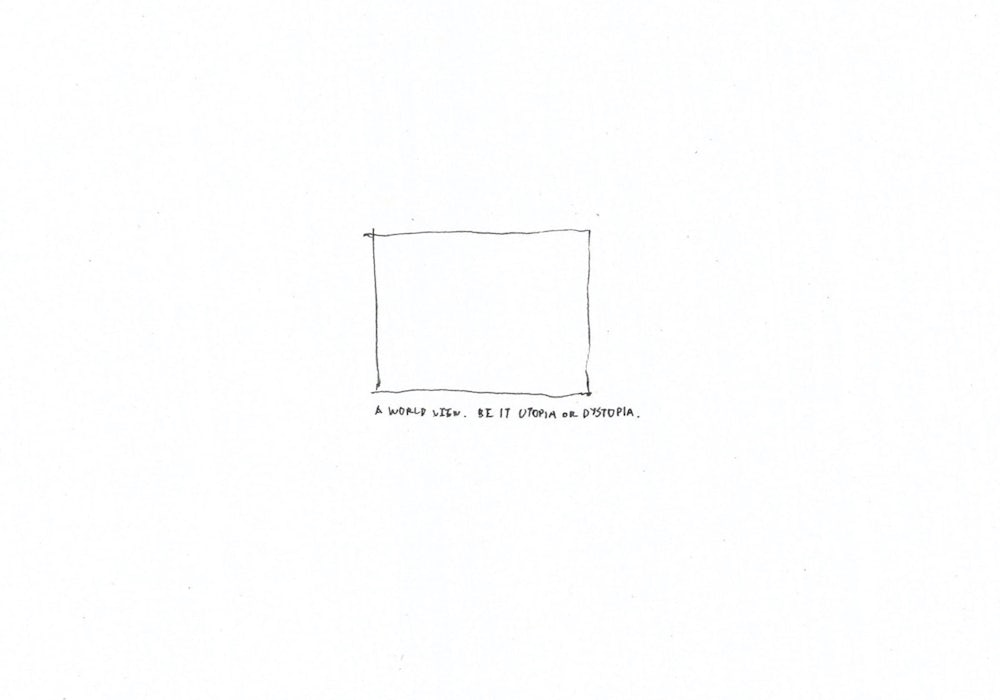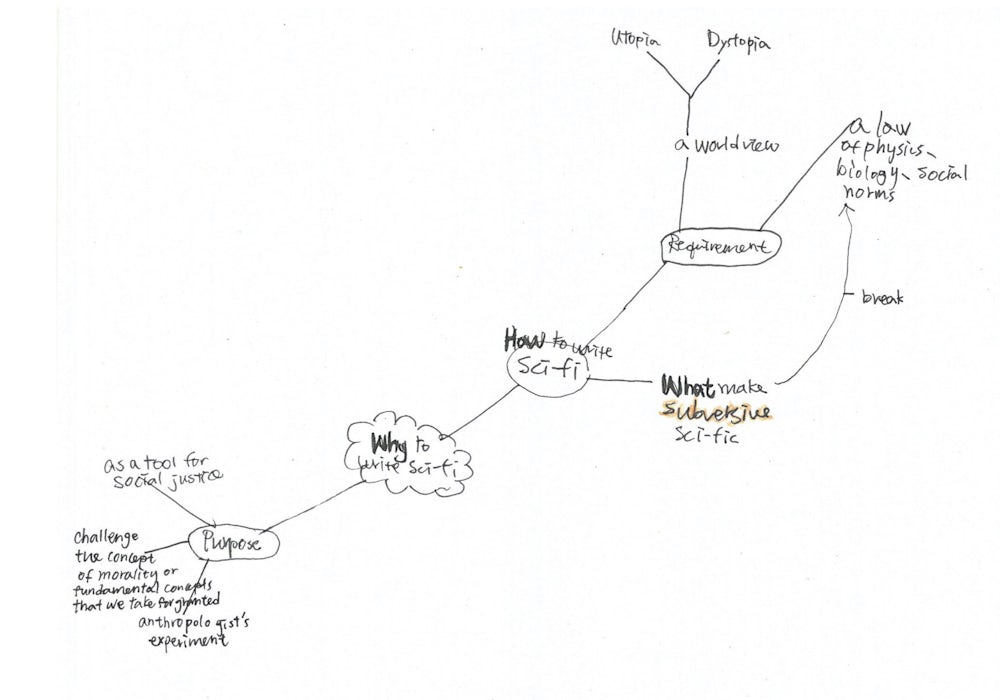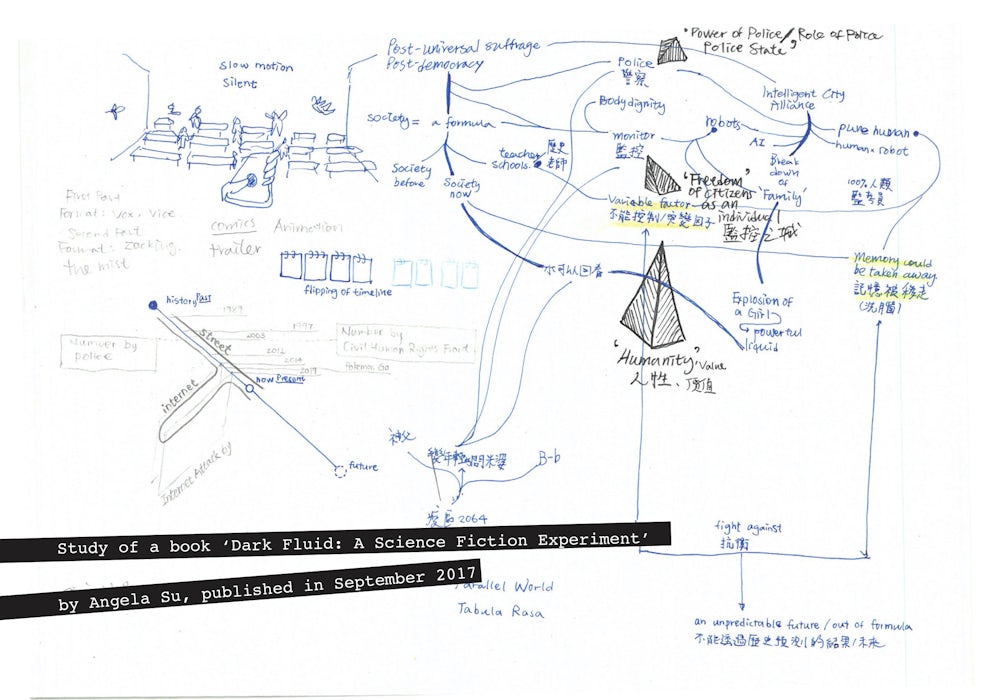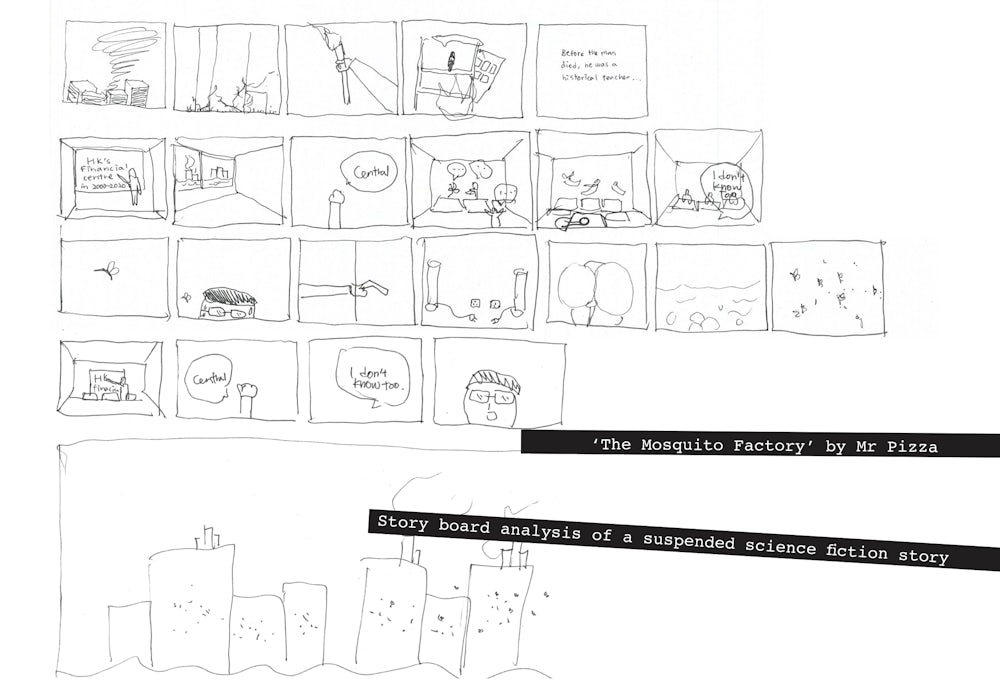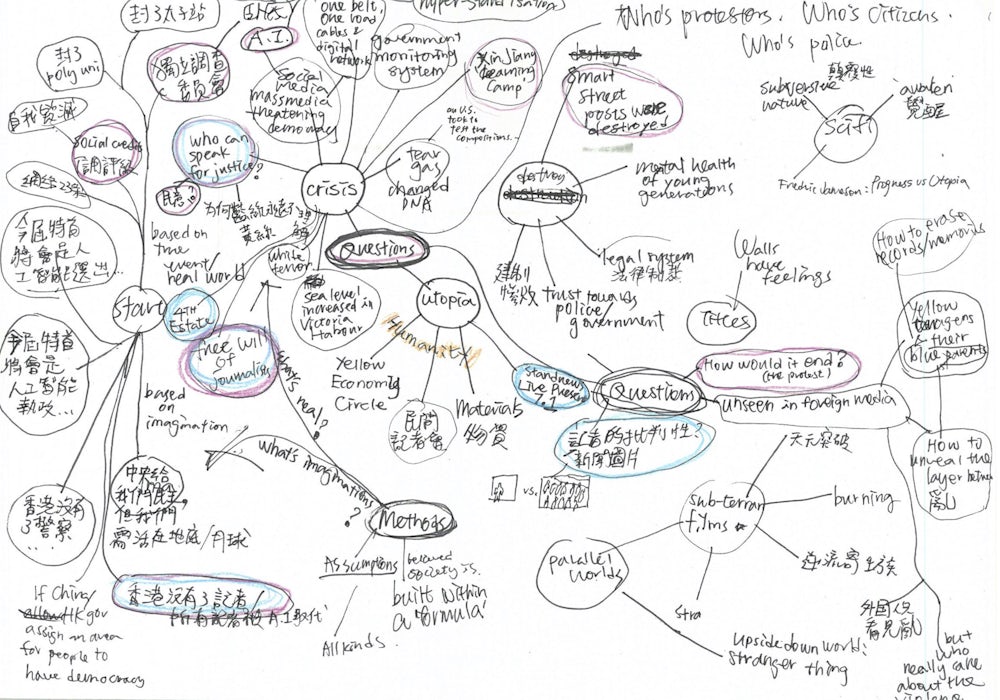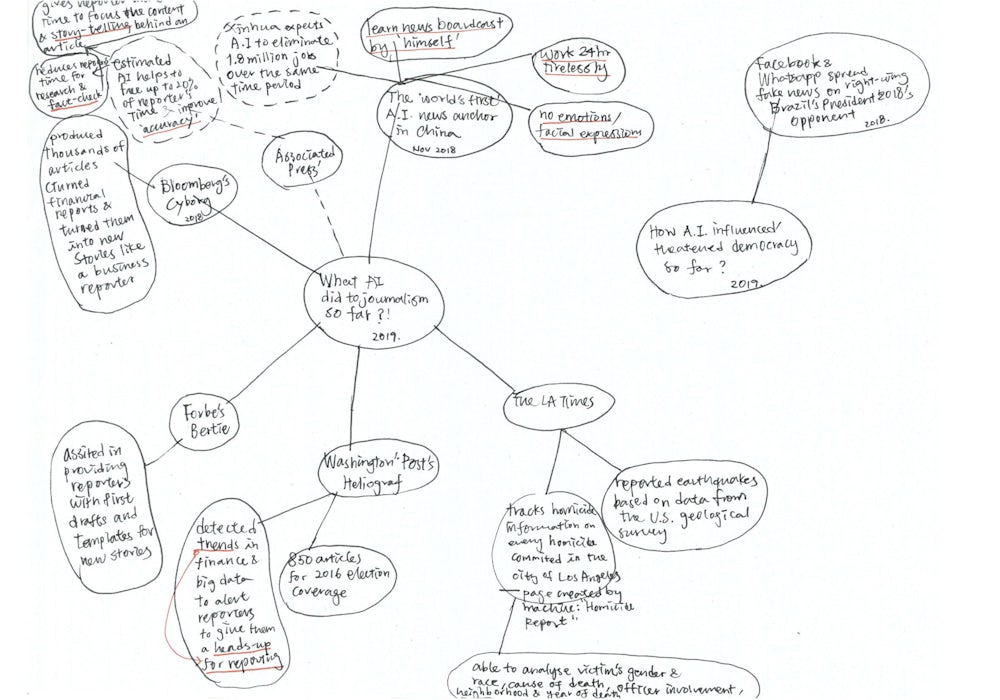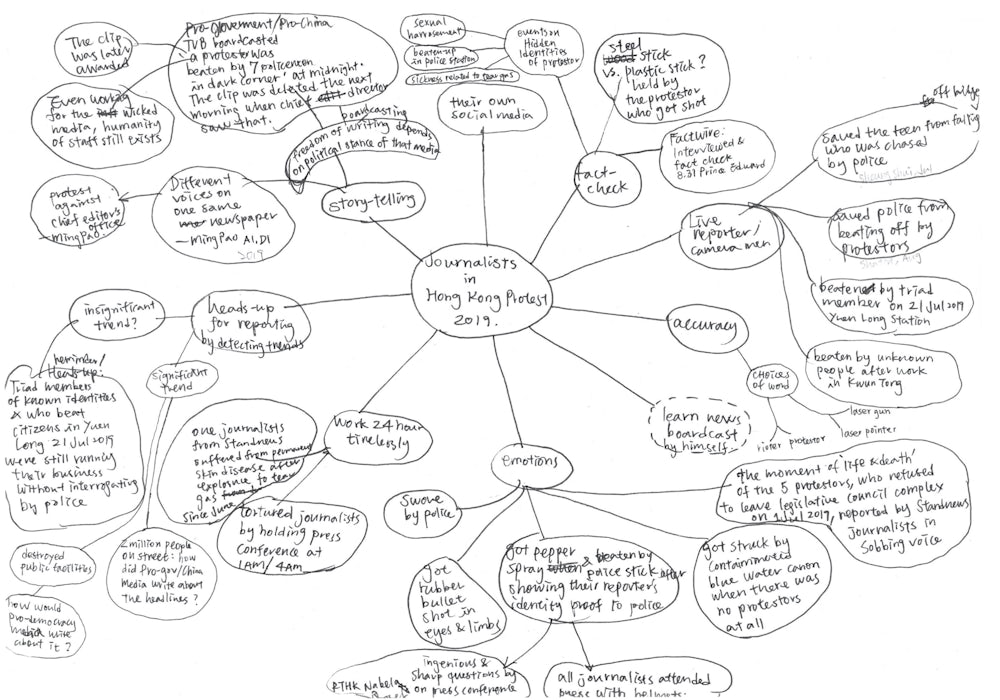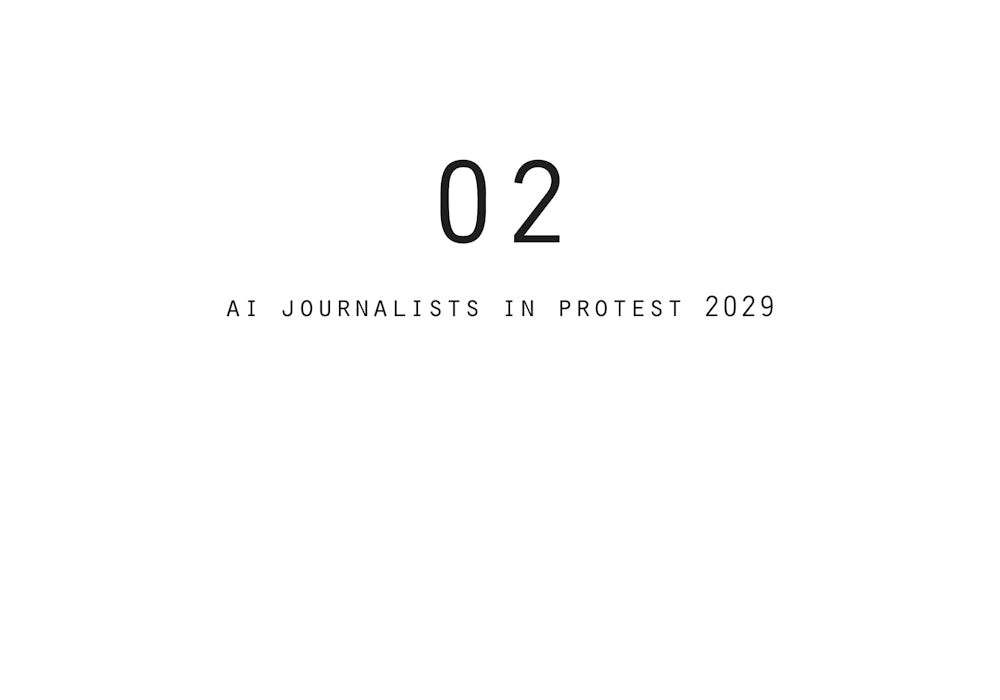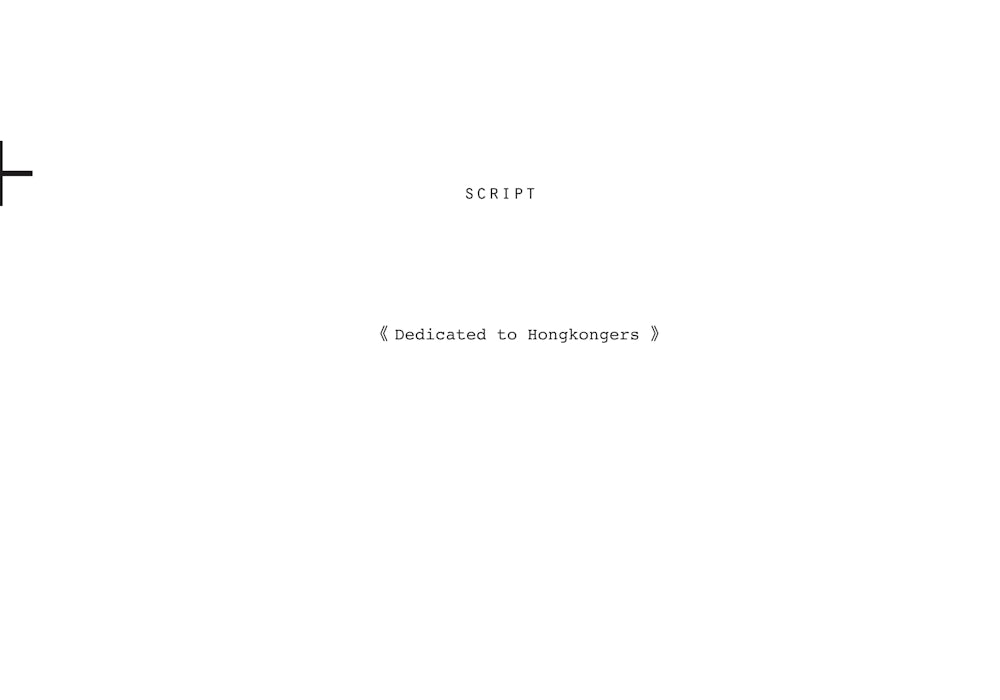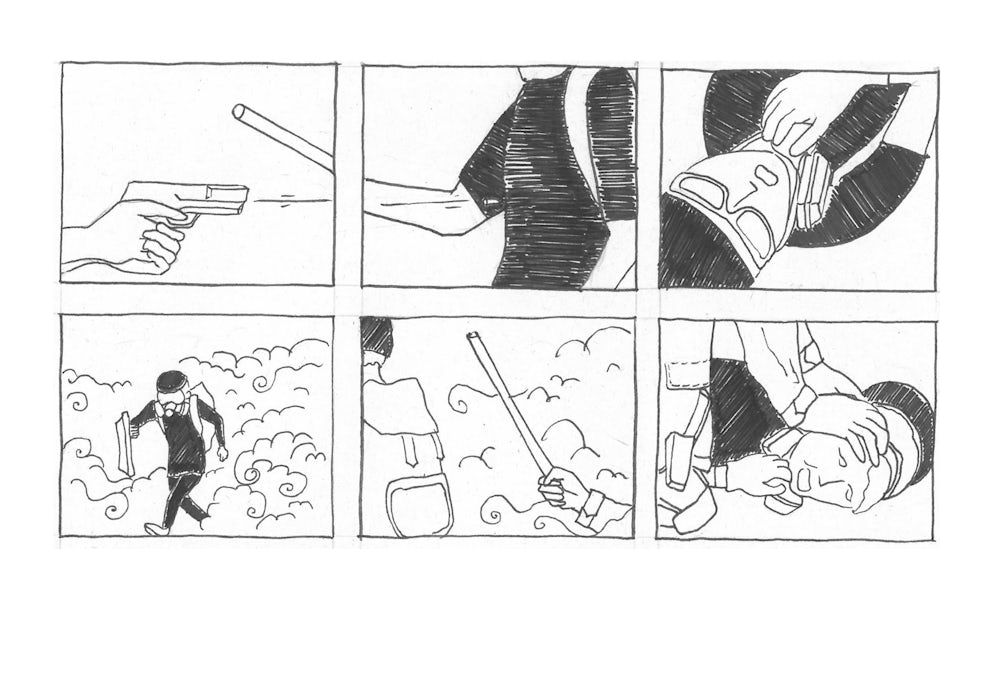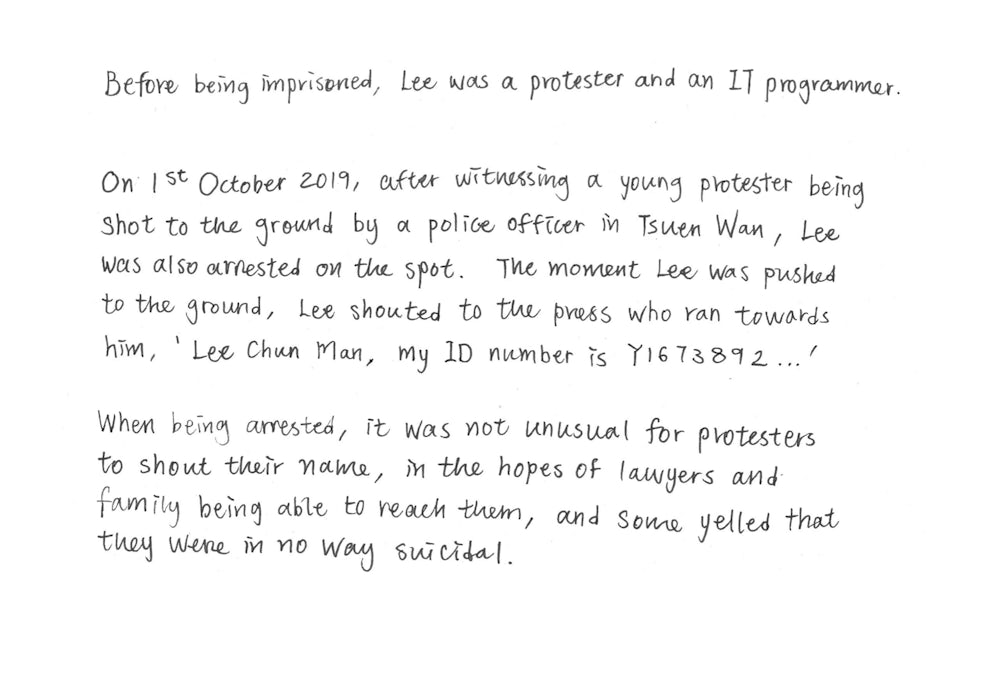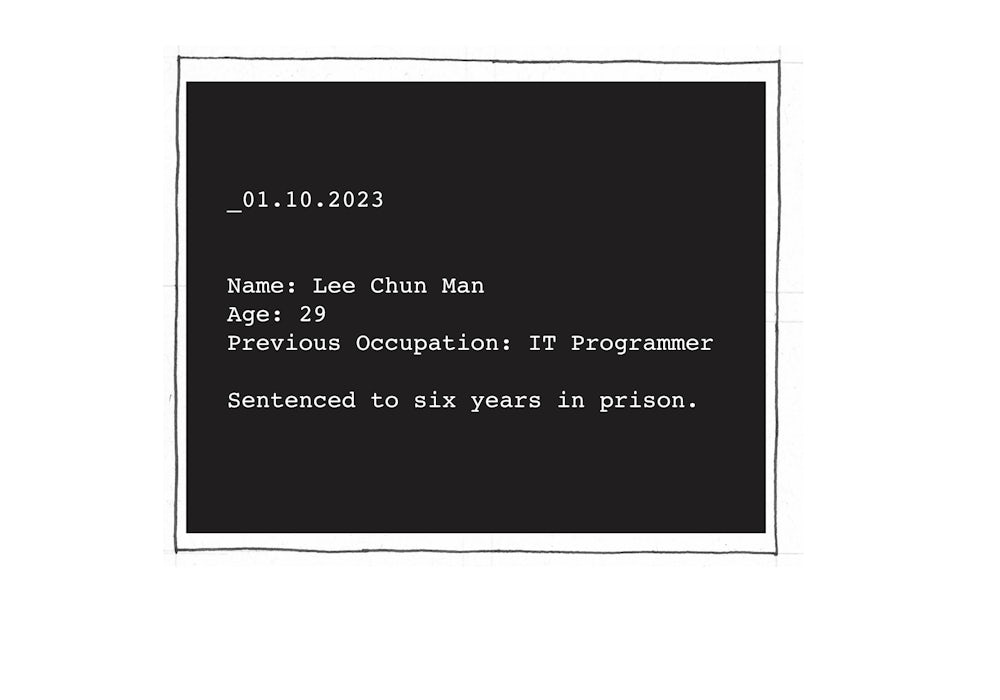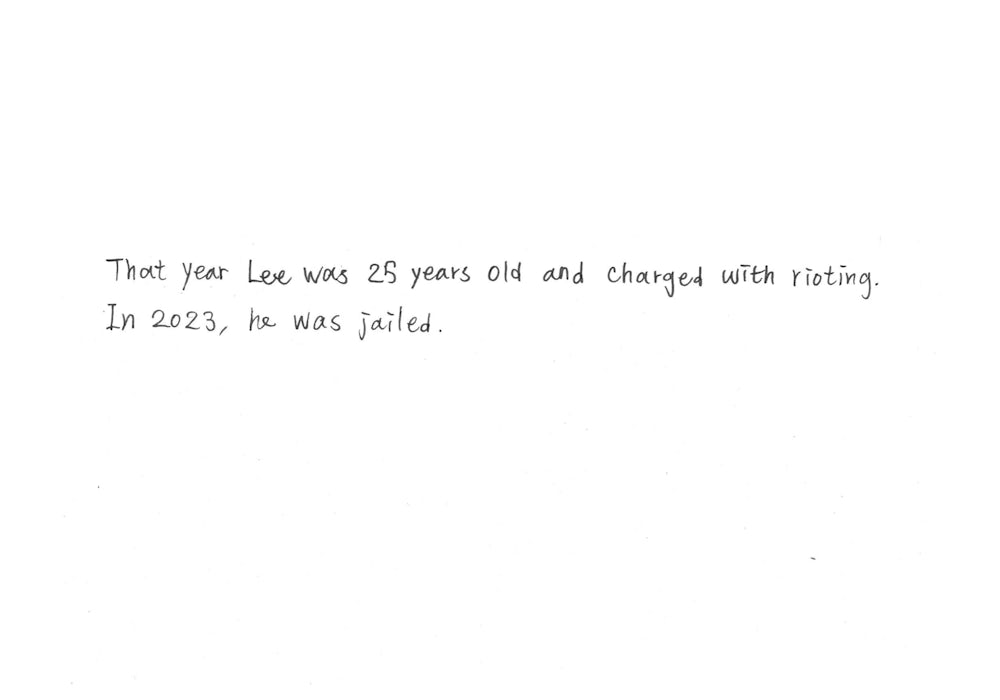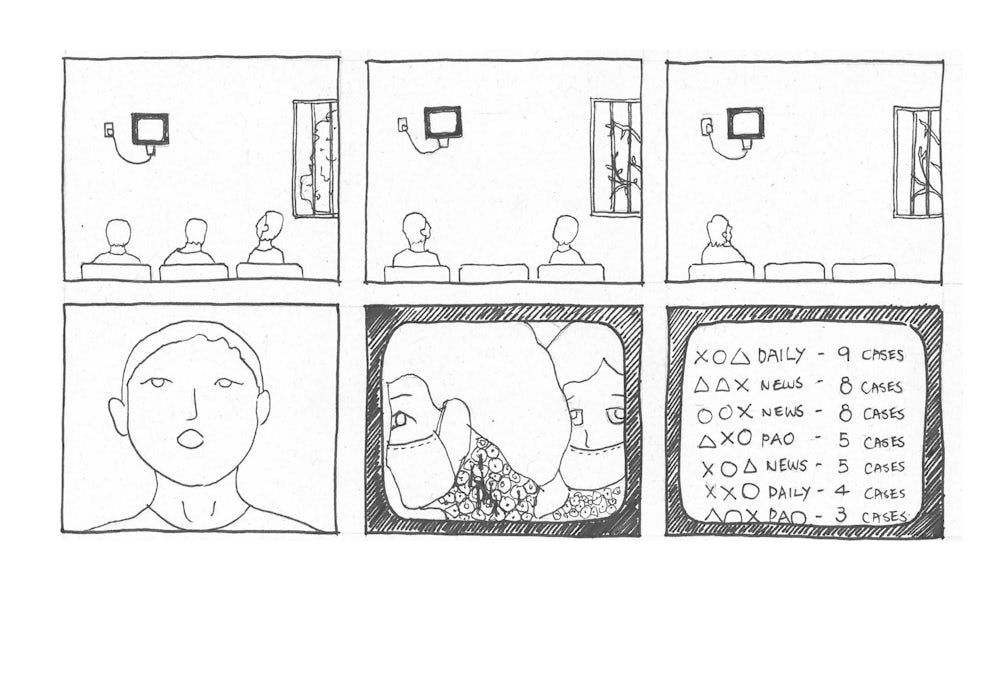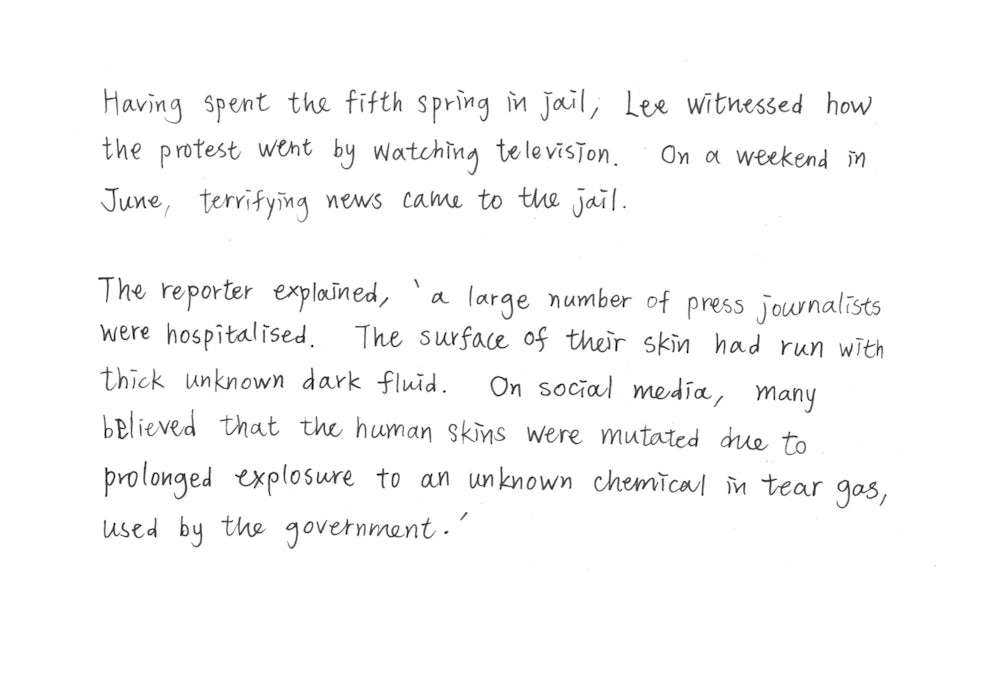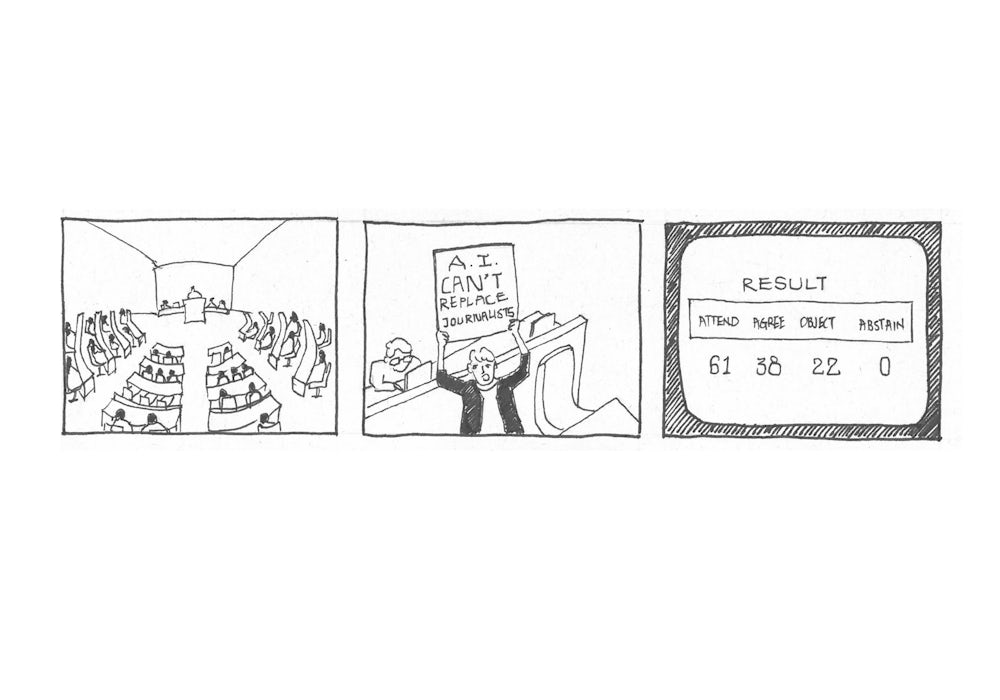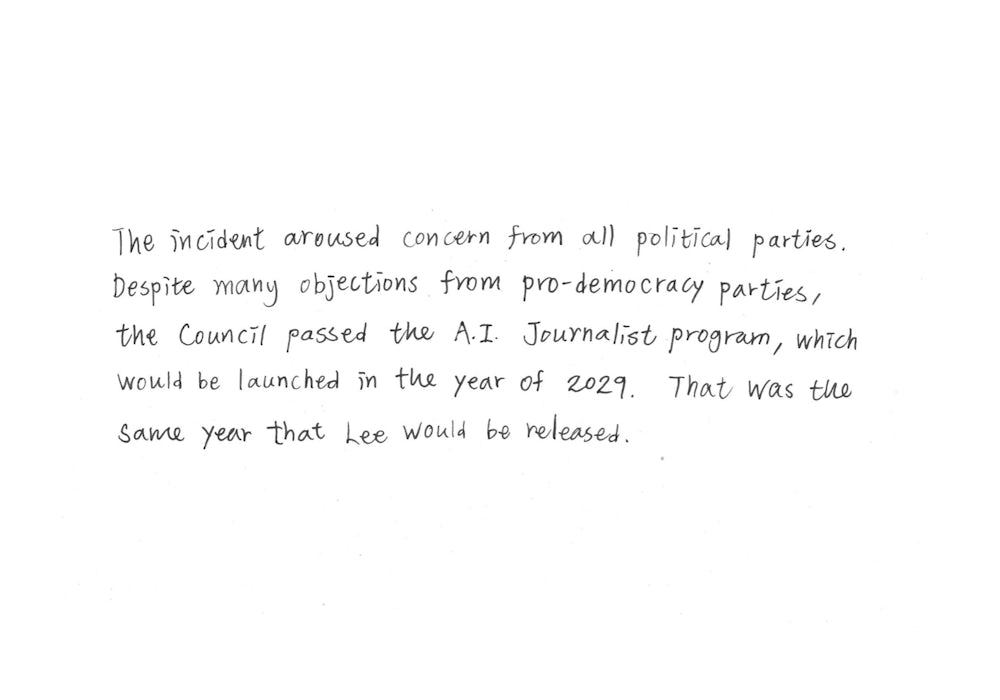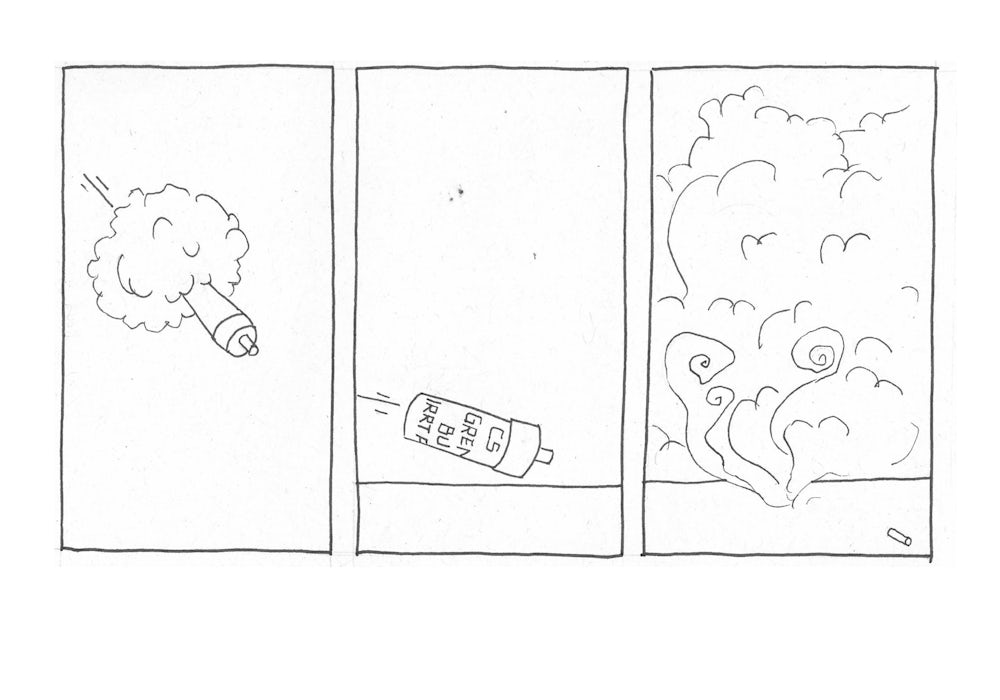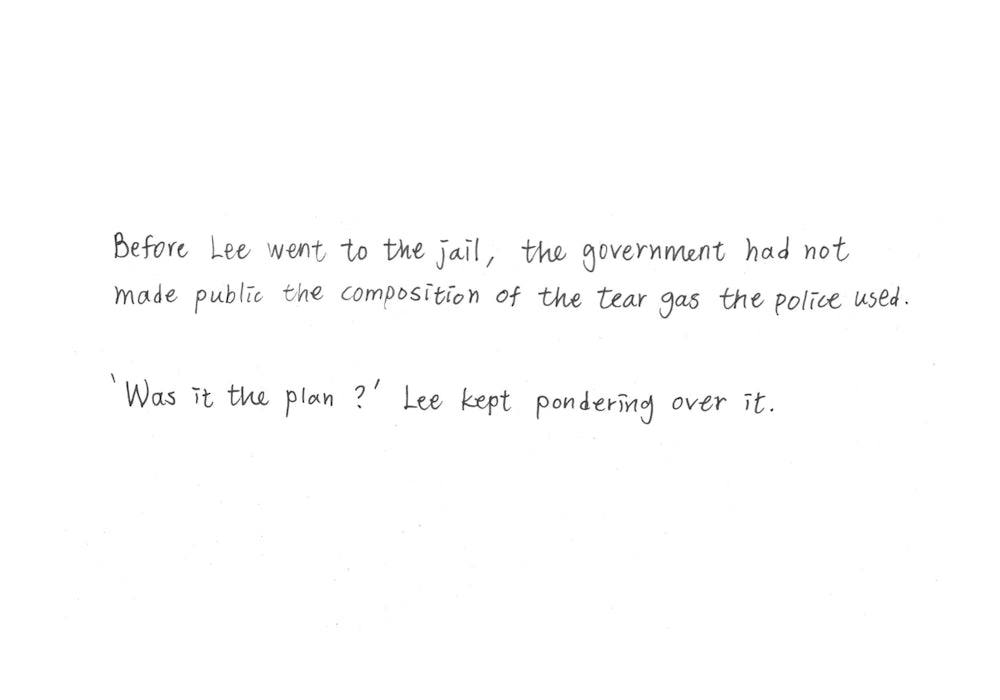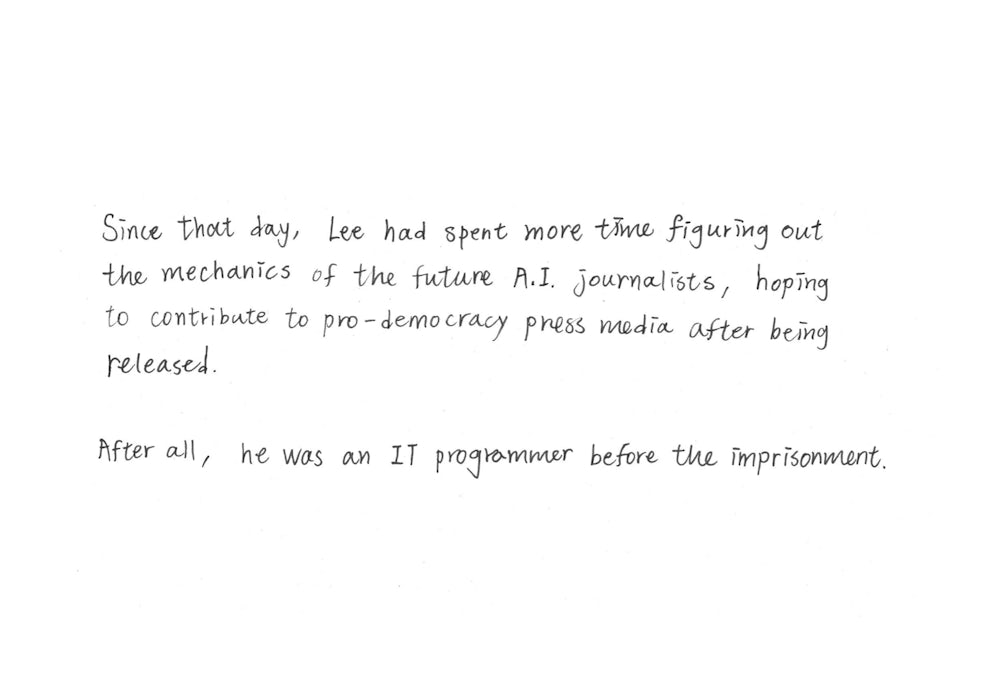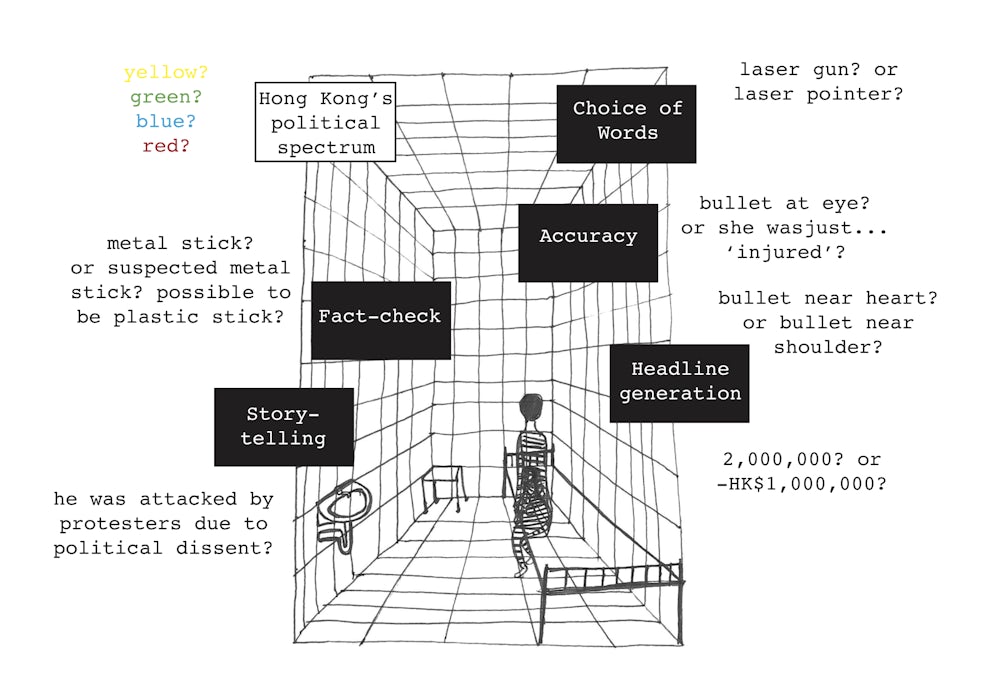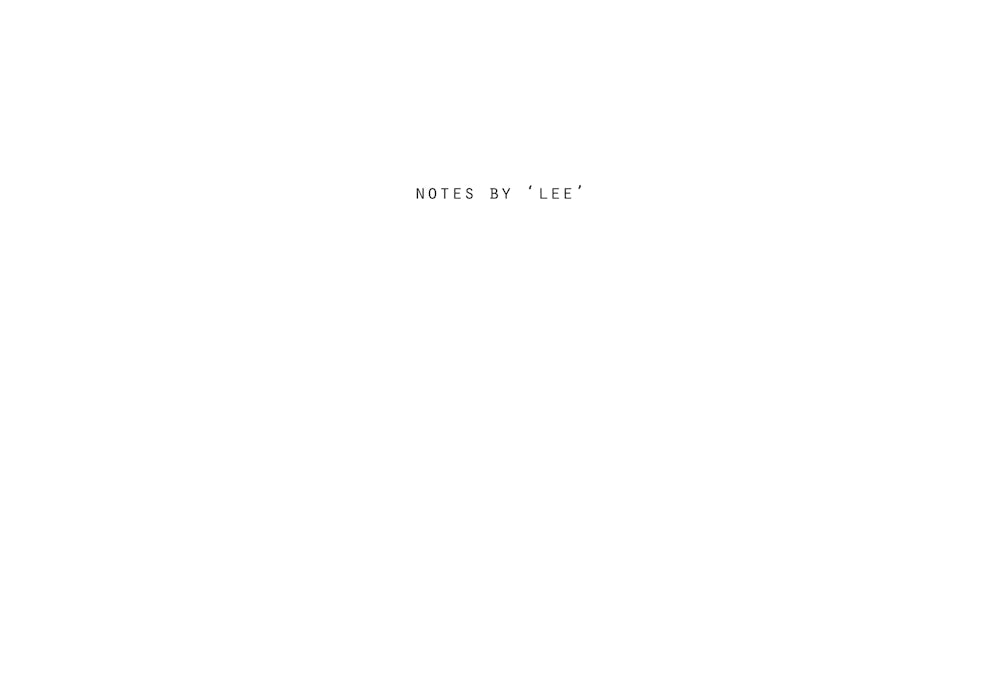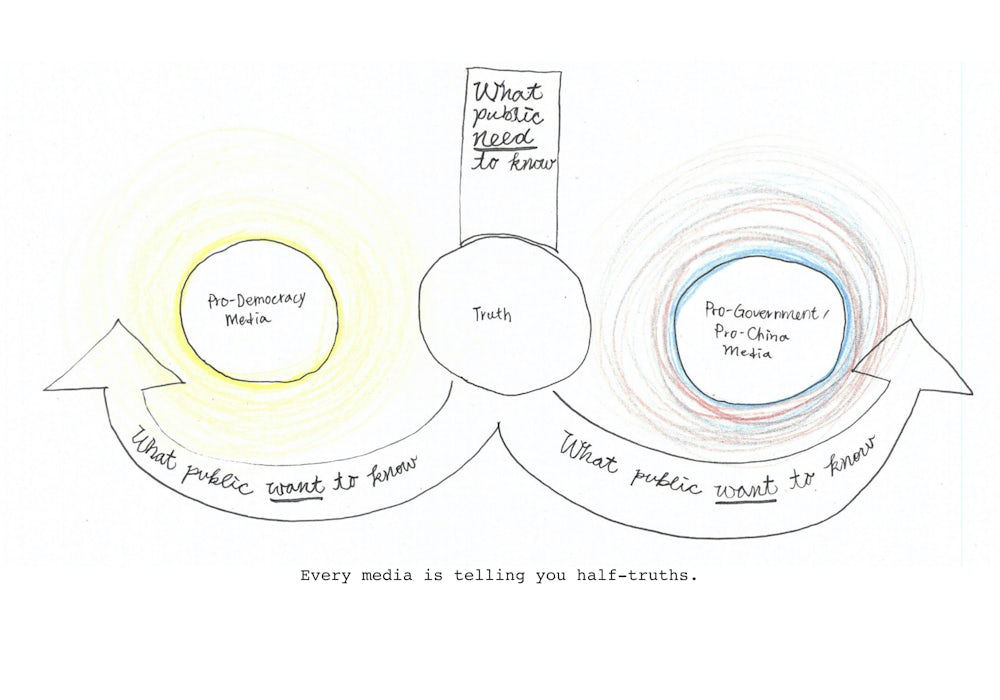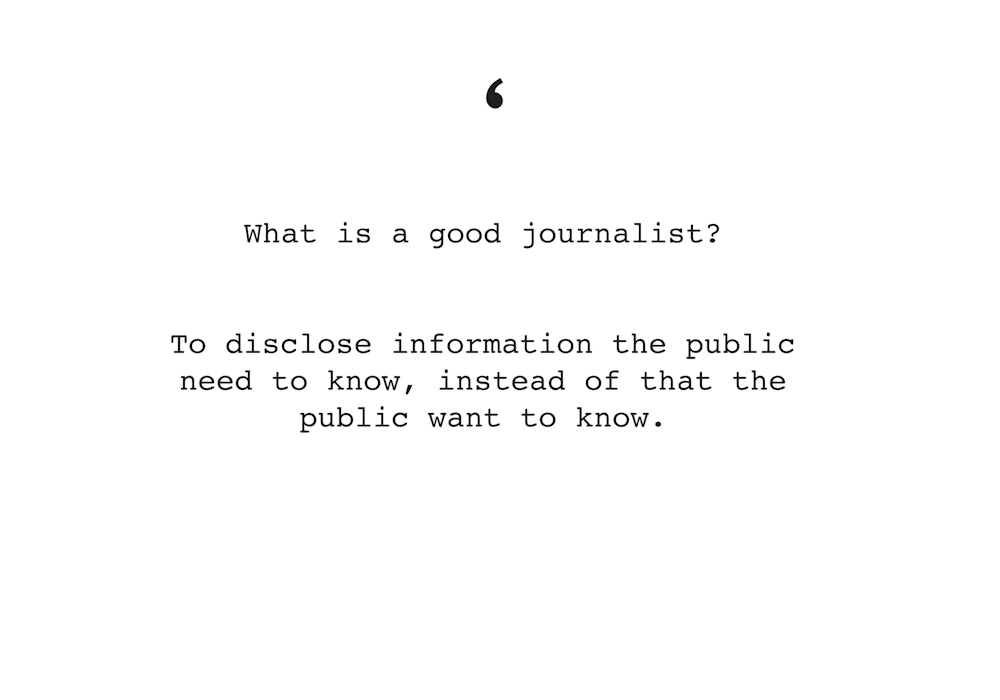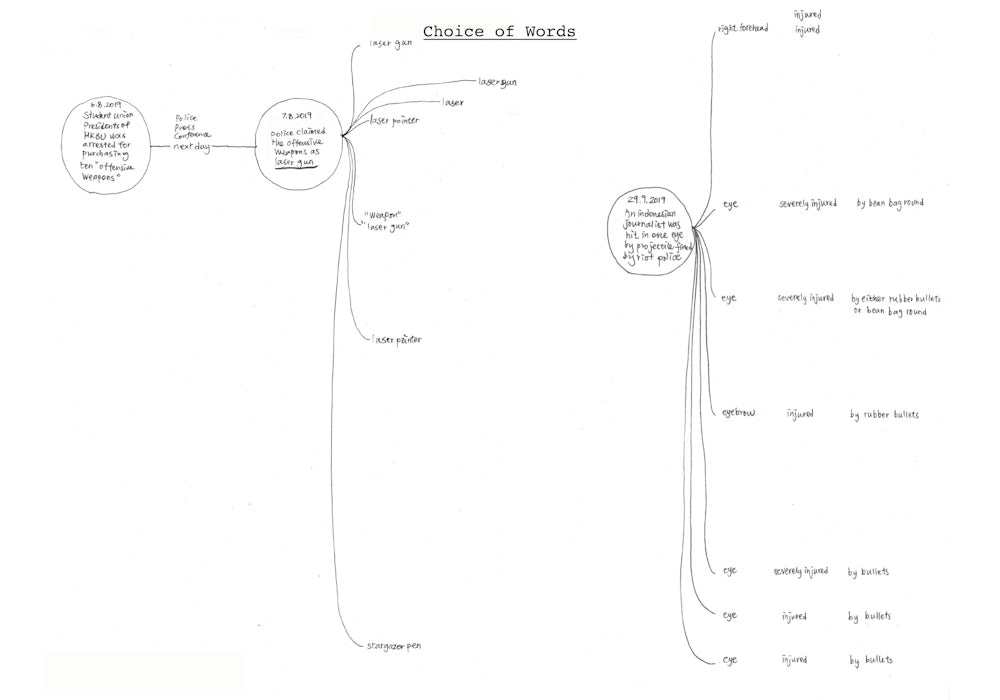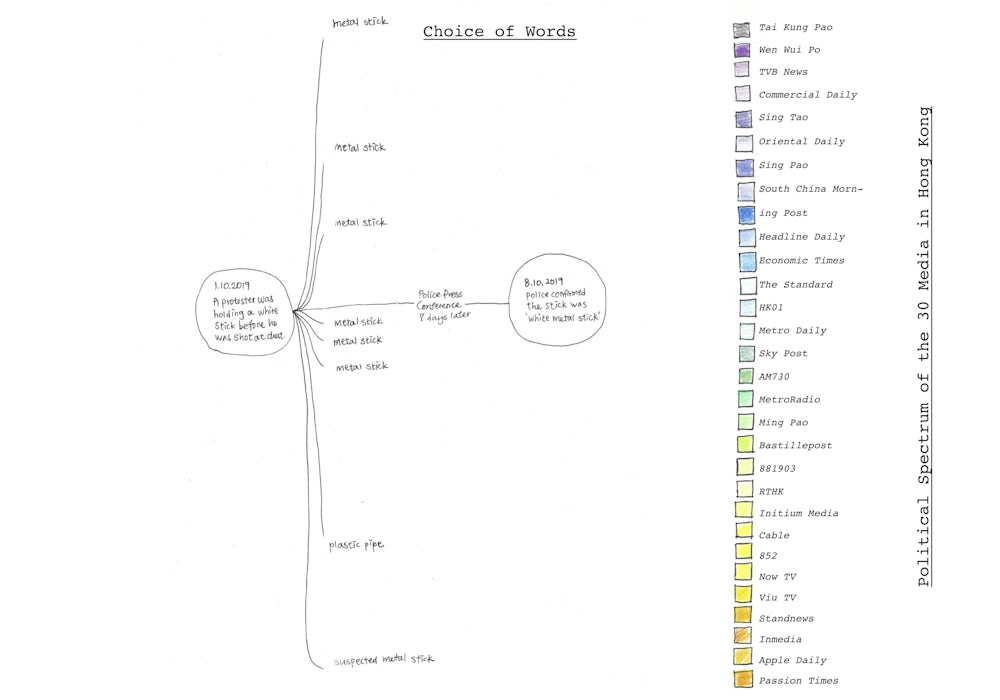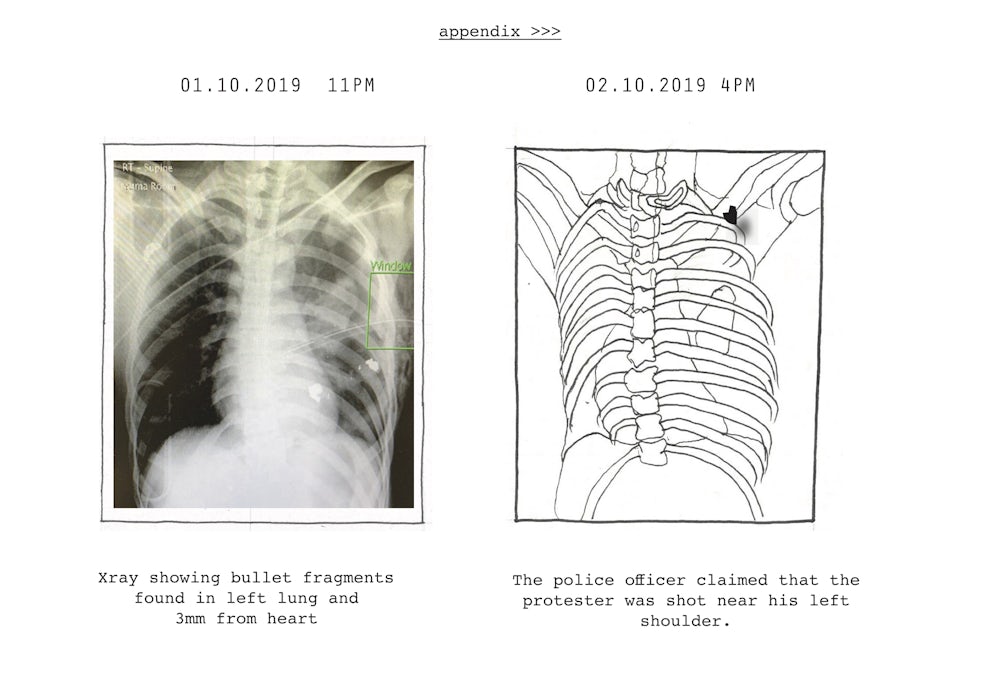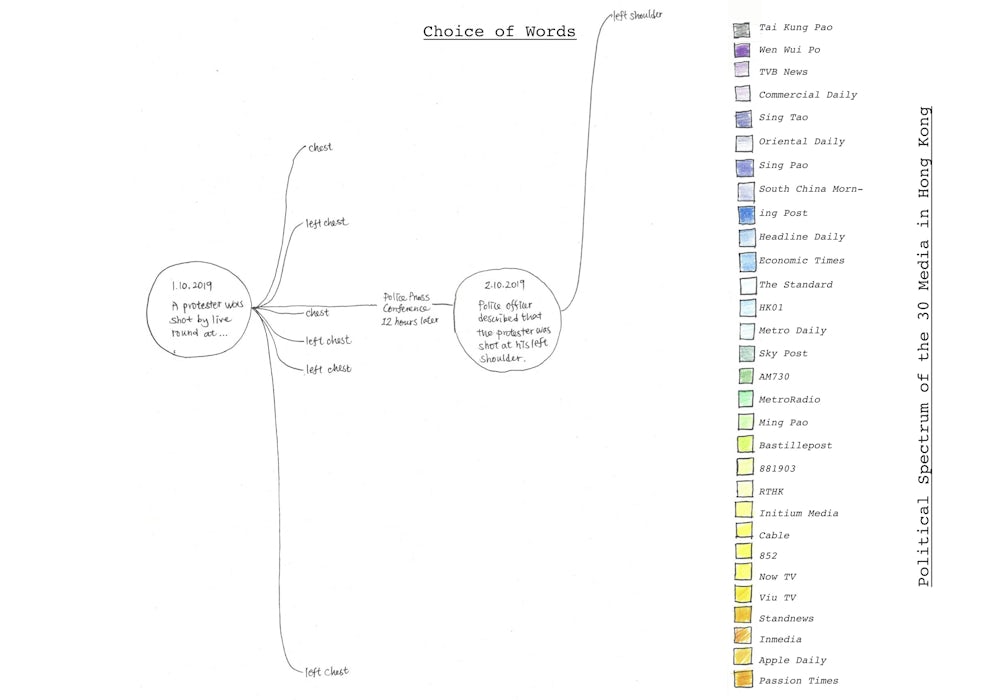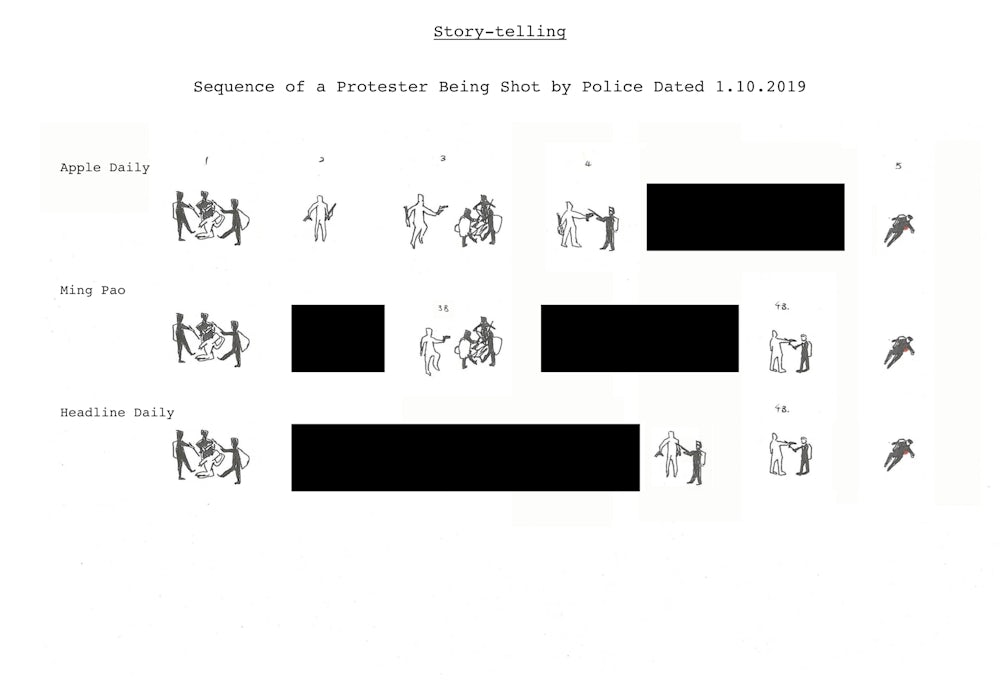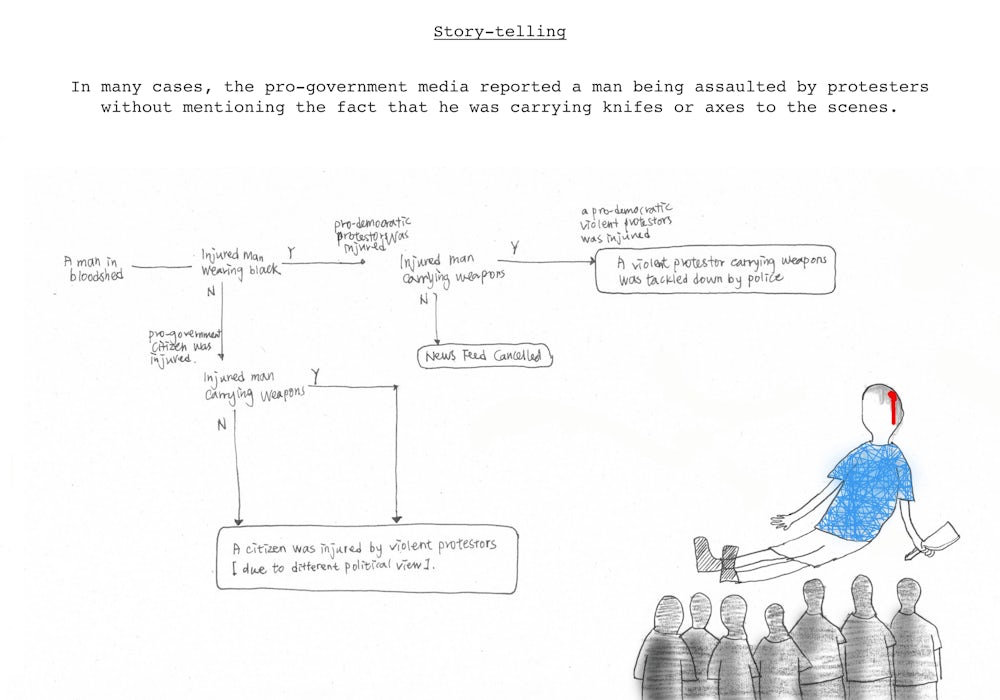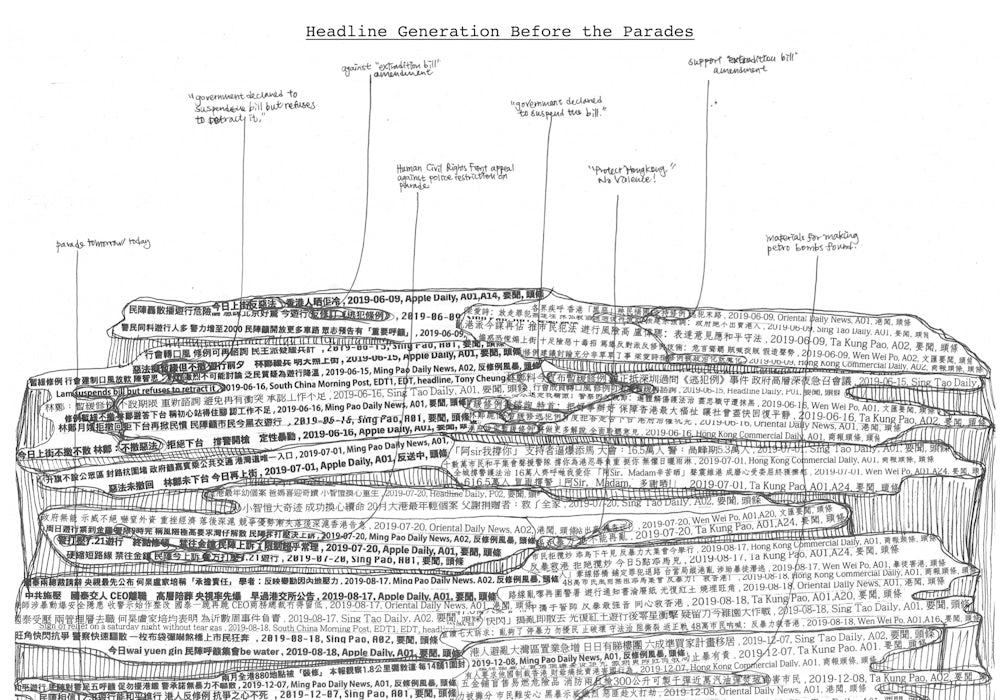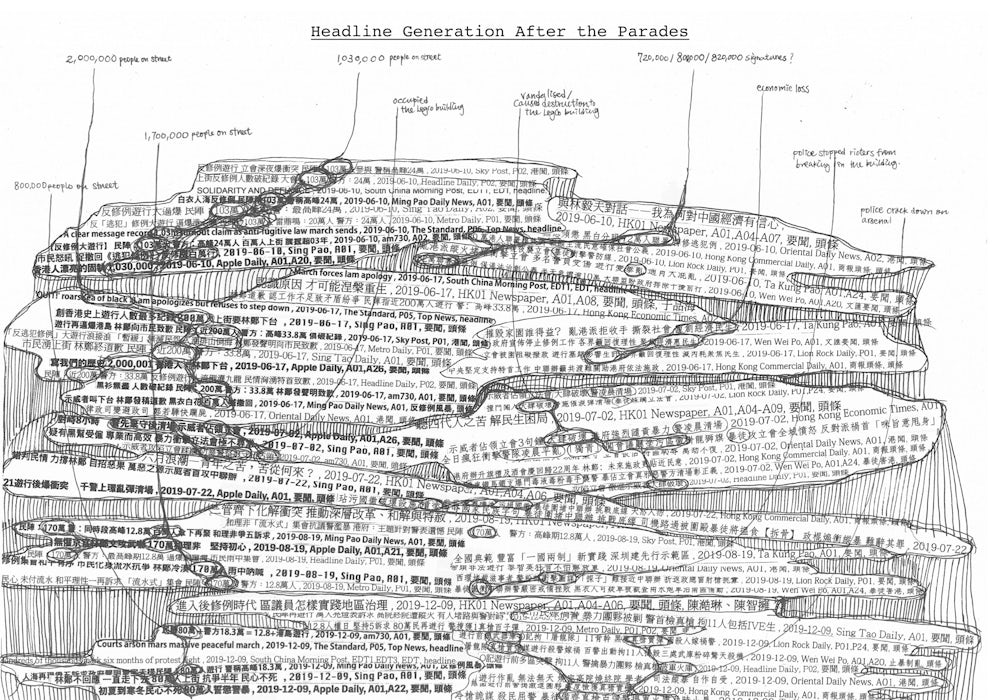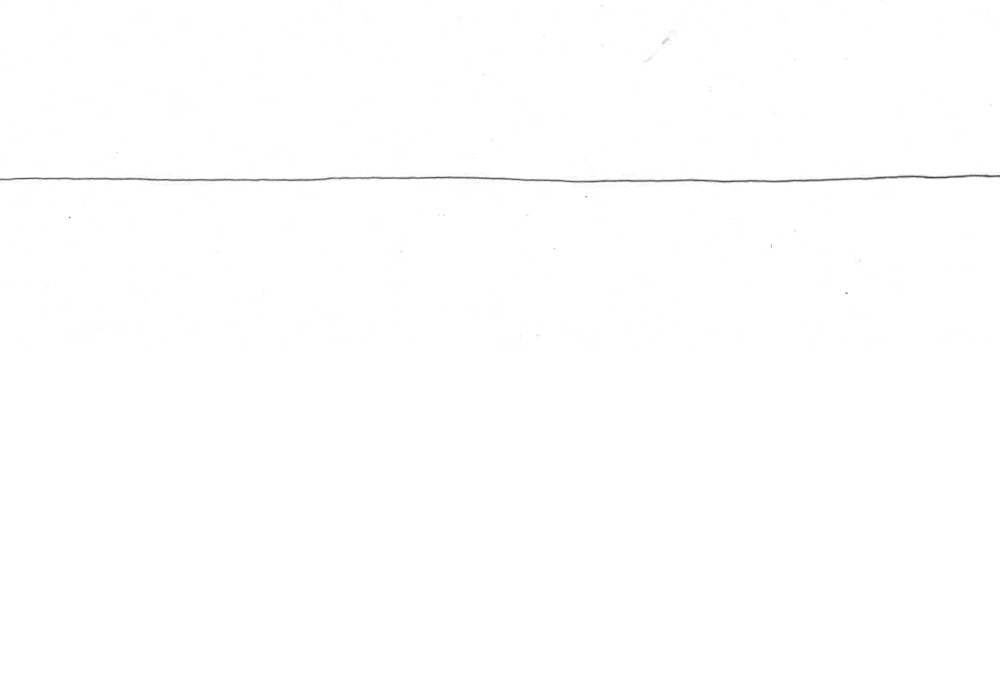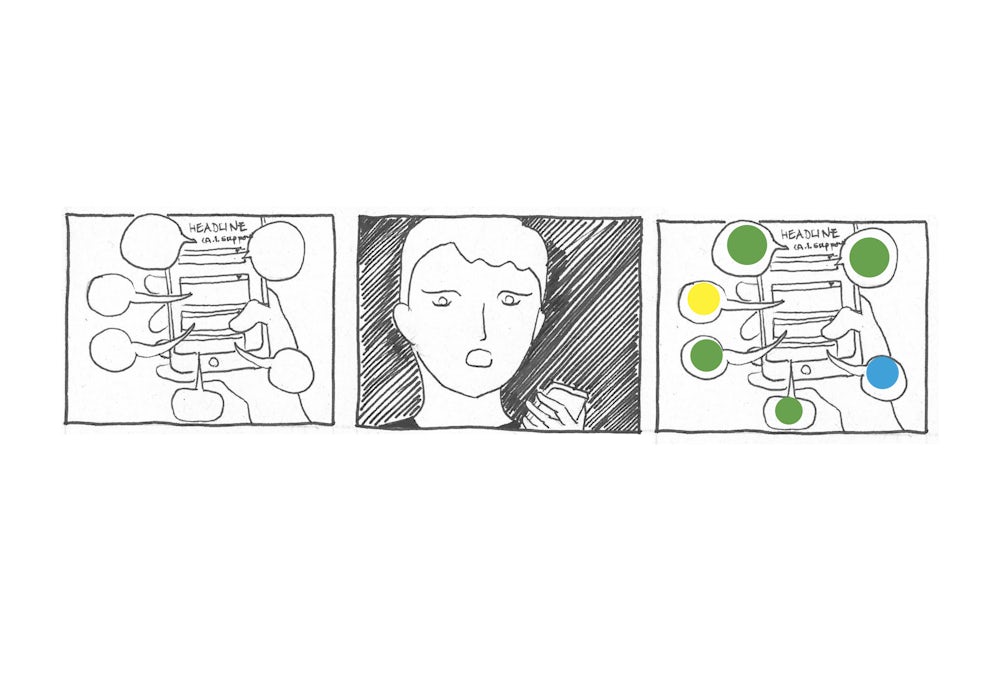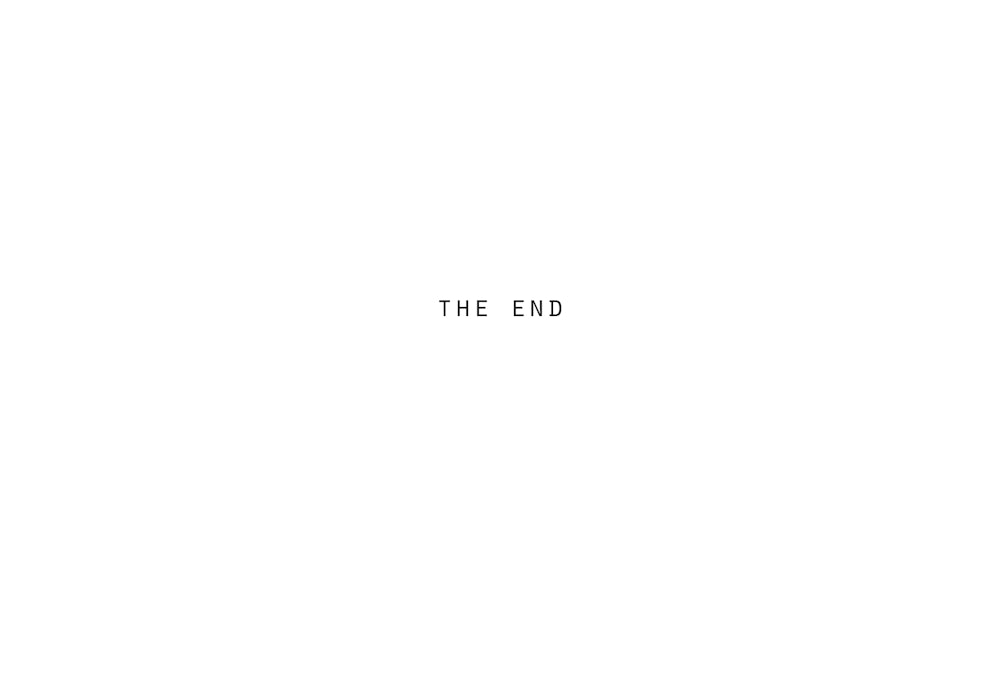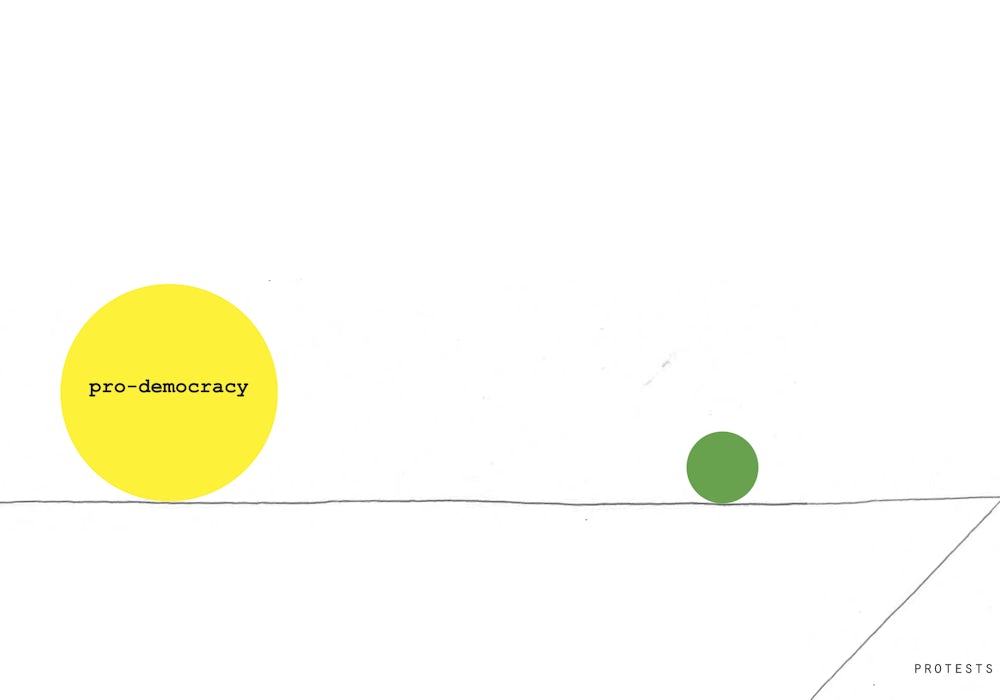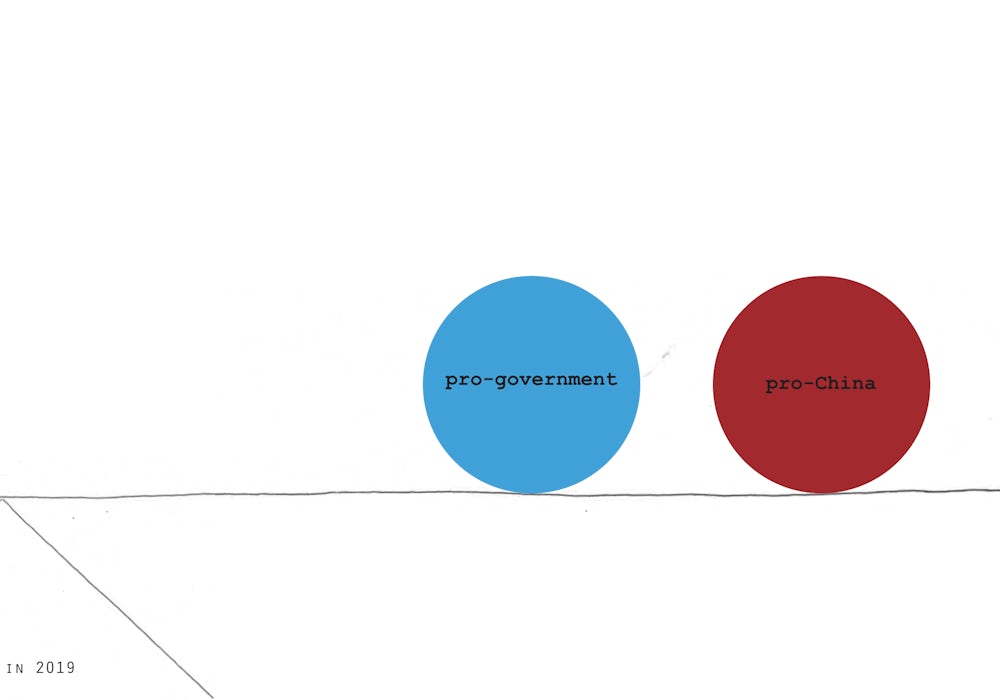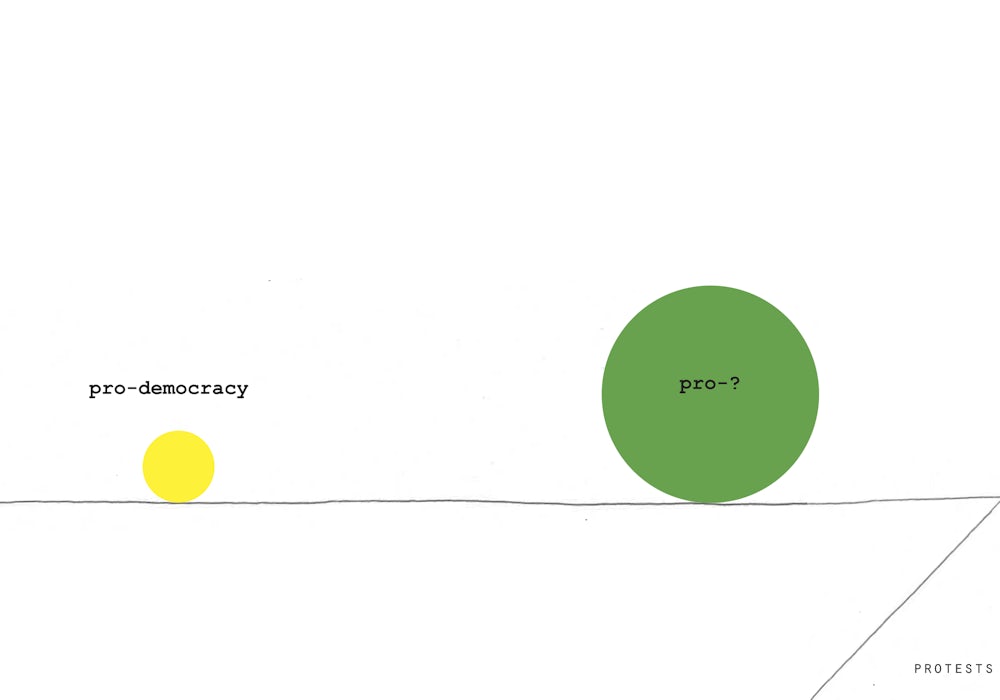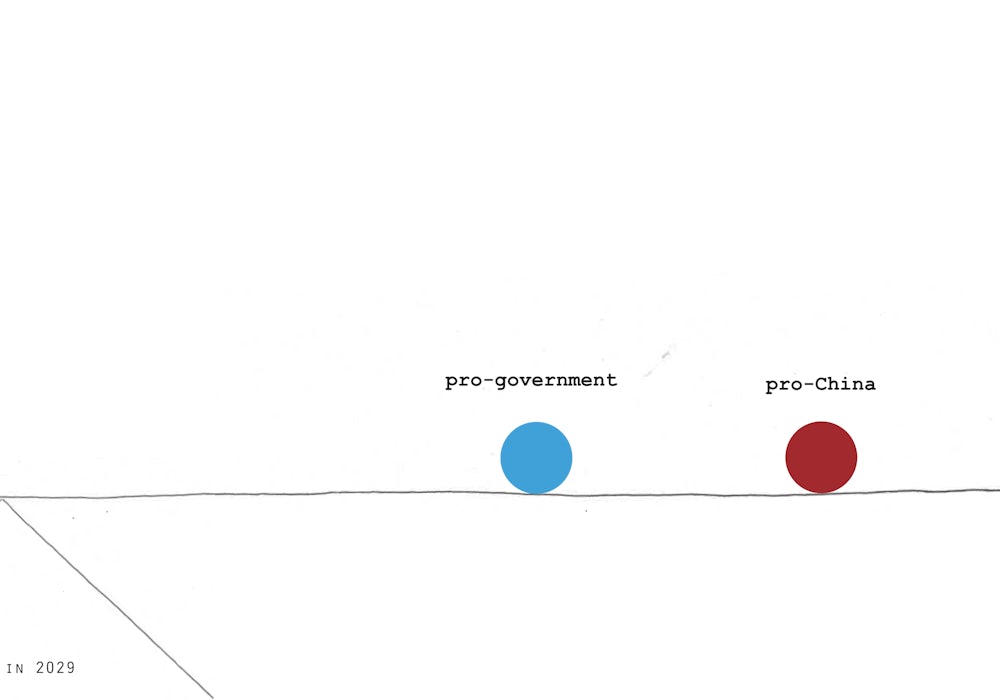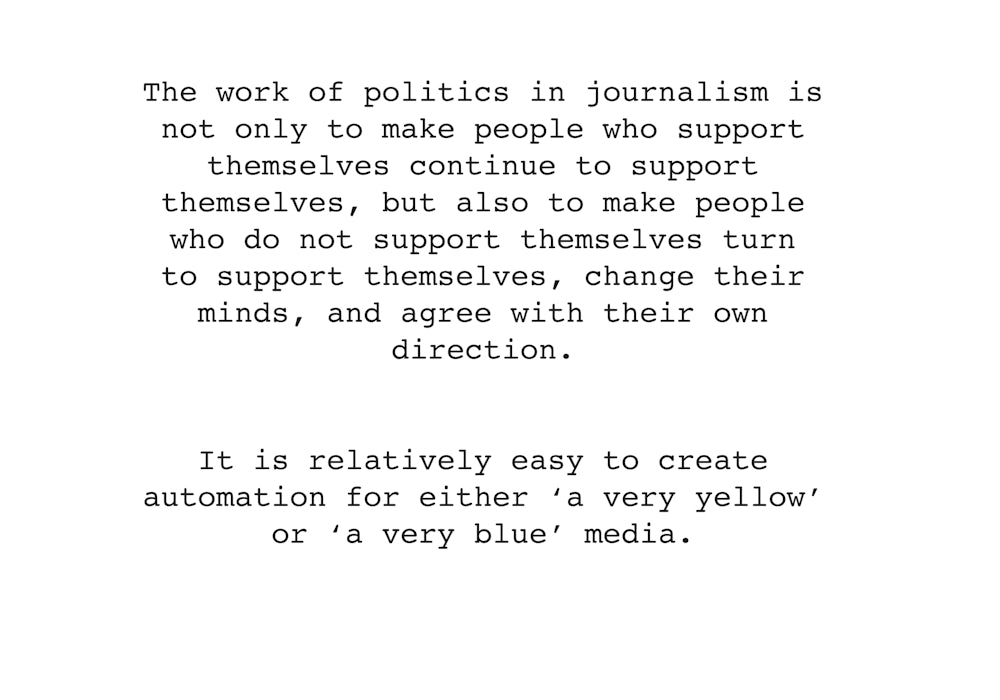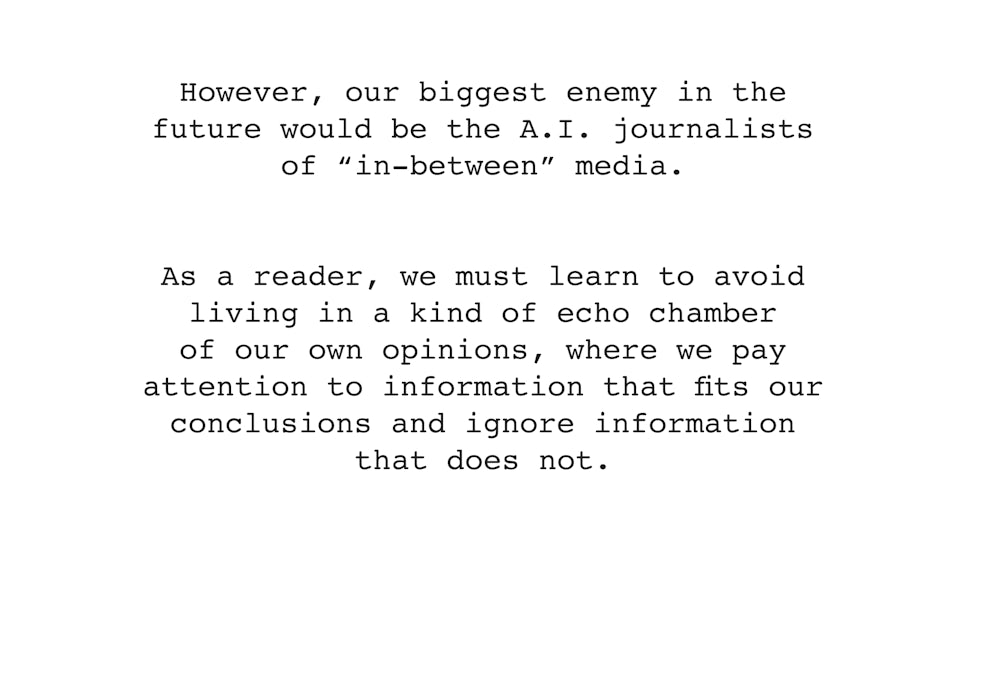Ching Yuet Ma
"A.I. Journalists in Future Protests"
Keywords: writing, drawing, publishing, technology
Throughout the protests against the amendment of the extradition bill and subsequent police brutality in Hong Kong from June to Dec 2019, I started to feel great respect for the journalists who have to encounter police brutality, risk their lives on the ‘battlefield’, and raise sharp questions at chief executive/ police press conference. Journalists are crucial to direct-action protest movements, as they offer updates on demonstrations via television, internet or newspaper. On the other hand, many Hong Kong people tend to read media which they believe shares their political stand — whether they are pro-democracy, pro-government or pro-China. However, there are also a very few media with ‘in-between’ status in the political spectrum, with not so many people realising they are pro-government media because they are smart enough to avoid sensitive and controversial language. Last November, China introduced the world’s first ever A.I. news anchor to its national TV. They claimed that the A.I. anchor could learn news broadcasting by ‘himself’, work 24hr tirelessly and without emotional turbulence. This poses the threat of even more systematized censorship in the future.
Amid the crisis brought by A.I. journalism, my work would be presented in a science fictional approach in terms of journalists’ role in collecting data within protests, fact-checking, story-telling during a demonstration and as the sole middlemen who raise queries and criticisms at government and police press conferences. Science fiction could be subversive if I break the laws of physics, biology, and the social norms towards the worldview I am trying to create, be it utopic or dystopic. Science fiction also has the potential to challenge the fundamental moral concepts that we take for granted -- What is a good journalist? Do they have to report the news that the public needs to know? Or that public wants to know? What do we need journalists for? How would A.I. journalists address these questions? I want to use science fiction as a mediation to criticise and bring about the issues of social justice and humanity.
I would use the background of Hong Kong protests in 2019 as a starting point, to question and imagine what would have changed or happened if the journalists are replaced by A.I. The speculative scenario in my work would be about a protest in 2029. The ideas would be expressed in short fiction, together with a series of analytical drawings. The final product would be an illustrated book.
